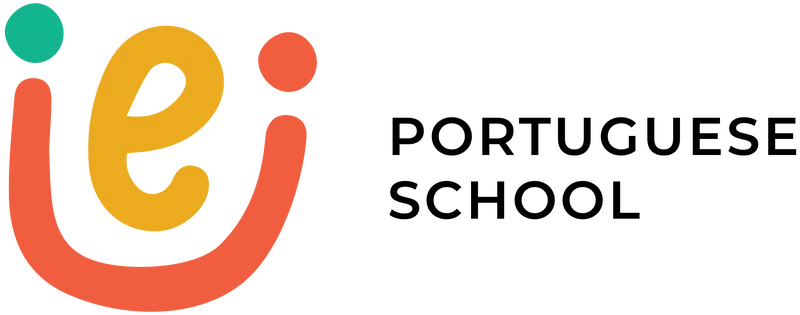Portuguese as a Foreign Language (PLE)
Our commitment!
To inspire children to learn Portuguese online through the use of unique materials that effectively and enjoyably develop linguistic and cultural skills.
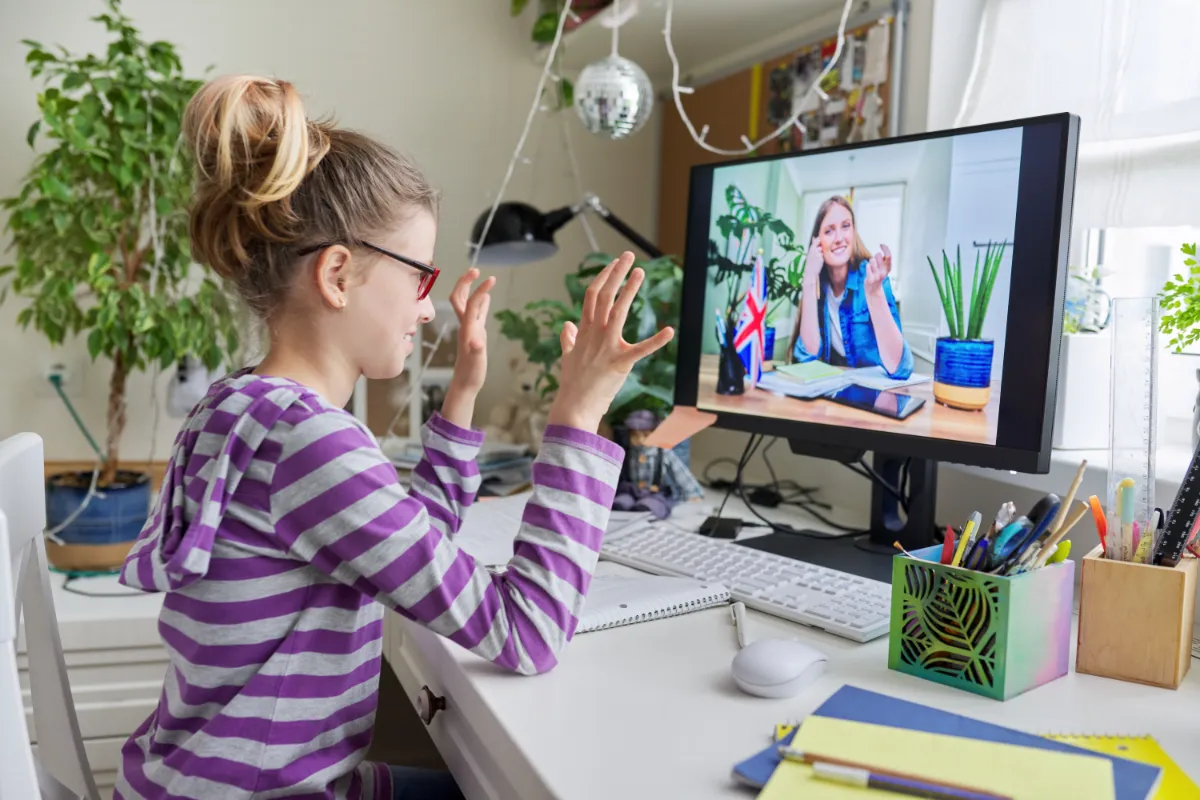
Why choosing iei?
In Escola de Português iei, we offer courses of Portuguese as a Heritage Language (PLH) and Portuguese as a Foreign Language (PLE) for children aged 5 – 16.
- every lesson is adapted to your child’s needs and level
- unique and tailored learning experience
- fun and innovative methodology
- children are encouraged to develop a positive relationship with the Portuguese language
- our teachers are highly qualified
- playful and interactive techniques
- engaging and captivating lessons
Portuguese as a Foreign Language
The primary goal of the Portuguese as a Foreign Language (PLE) program is to initiate and/or develop communication in Portuguese, focusing on the development of vocabulary and linguistic structures appropriate for the students’ ages.
The work carried out in PLE classes takes into account the prior knowledge the child brings with them from their own language. With younger students, there is a greater emphasis on oral communication and playful activities; with older students, while always valuing oral and lexical components, we also address reading and writing skills in Portuguese.

Who is it for?
The Portuguese as a Foreign Language (PLE) program is designed for children and young people who:
- do not speak Portuguese fluently
- can only say a few words or isolated phrases and are unable to hold a conversation in Portuguese
- understand Portuguese well but do not speak it (due to shyness, lack of confidence, or vocabulary)
- your family is Portuguese or not
This is not the right course for your child if:
- speak Portuguese fluently
- are able to hold a conversation on a variety of topics in Portuguese
Do you want to know more information on Portuguese as a Heritage Language? Click the buttom below.

Online Portuguese courses adapted to your child's needs.
Our interactive and flexible classes can improve your child’s language development while keeping them connected to their cultural roots.
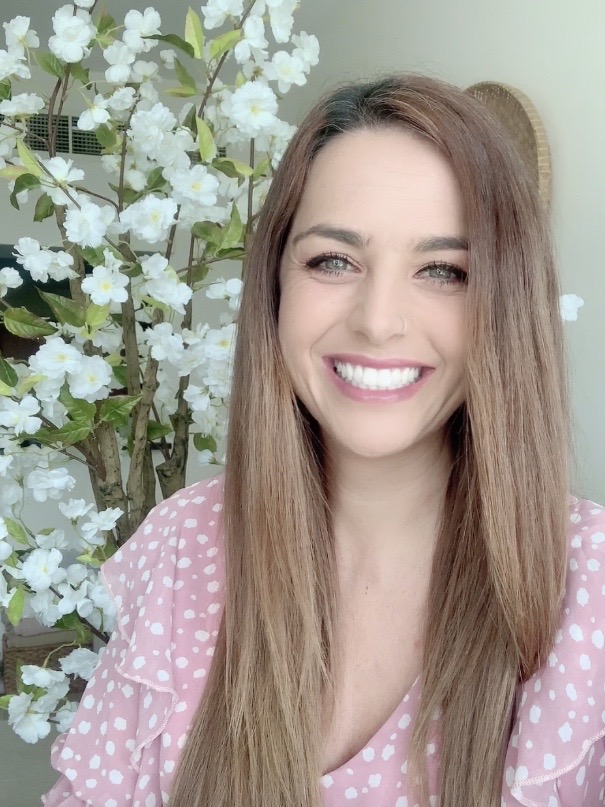
Olá! Welcome to iei (pronounced 'yay')!
I am Marisa Soares, founder of iei – inovar educar inspirar (inovate, educate, inspire).
With 17 years of teaching experience and an international journey that spans Portugal, Switzerland, and Dubai, I’ve had the privilege of working with over 80 nationalities, which has allowed me to develop a truly inclusive and student-centered approach to education.
My passion for teaching goes beyond the classroom, focusing on the emotional, social, and academic development of each child, creating learning environments that are engaging and challenging.
I combined my experience as a teacher with my entrepreneurial spirit and founded iei to innovate how we teach and learn Portuguese. I strongly believe in the value of human connection and its impact on learning.
By bringing together teachers, students, and families, we create challenging and enriching environments where education goes beyond the classroom. I am always ready to explore new ways to teach, learn, and grow, with the mission to innovate, educate, and inspire.
If you are looking for an educational environment that values personalized, student-centered learning, I invite you to discover how iei can support your family. Get in touch, and together we will innovate, educate, and inspire!
Topics covered in our online portuguese classes
Personal identification and characteristics
Environment
Shopping
Travel and transportation
Perceptions
Private life
School
Services
Hygiene and health
Social relationships
Home
Food
Leisure time
Work and professions
Current events
What is Level A1 and A2?
Our Portuguese as a Foreign Language (PLE) curriculum was developed in accordance with the guidelines of QuaREPE (Reference Framework for Portuguese Teaching Abroad) and the Camões PLE Framework.
Escola de Português iei offers Portuguese as a Foreign Language courses for the following proficiency levels: Pre-A1, A1, and A2.
Students placed at levels B1, B2, and C1 will follow the Portuguese as a Heritage Language (PLH) curriculum with the necessary adjustments.
Levels and sublevels of online Portuguese as a Foreign Language for kids
Ages 5 - 6
Pintainhos
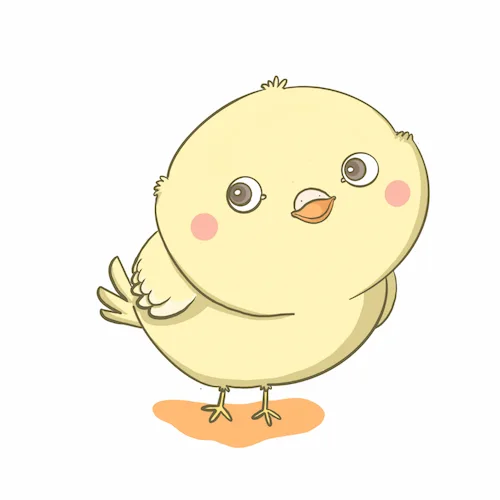
The Little Portuguese Explorers! At this level, students begin learning basic vocabulary and simple structures, with a special focus on oral communication. Perfect for taking the first steps in the language! – Pre-A1 Level
Ages 7 - 10
Galinhos

At this stage, students expand their vocabulary and begin mastering simple linguistic structures. In addition to oral communication, we gradually introduce reading and writing, building a solid foundation for further language progress. – A1 Level
Ages 10 - 13
Galos

With a balanced focus on oral communication, reading, and writing, this level deepens vocabulary knowledge and linguistic structures, always adapted to the students’ age group. This is where confidence in communication begins to grow! – A1 Level
Ages 13 - 15
Andorinhas
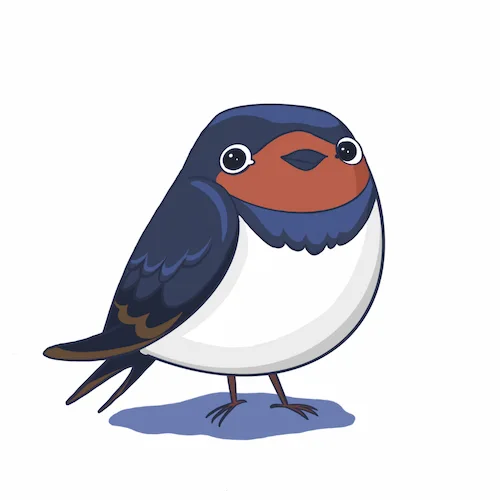
With a balanced focus on speaking, reading, and writing, this level deepens students’ understanding of vocabulary and linguistic structures, always tailored to their age group. This is where confidence in communication really starts to flourish! – A1 Level
Ages 11 - 16
Gaivotas

At this level, students explore Portuguese through a variety of topics, games, and activities that help them gain confidence in communication. Grammar and speaking skills are developed in greater depth, preparing them to confidently soar into the A2 level. – A2 Level
* The levels are designed to be completed within the indicated timeframe; however, several factors may contribute to shortening or extending the duration.
* Progression to the next level depends on age, progress, and achievement upon completion of the current level.
Enrollment
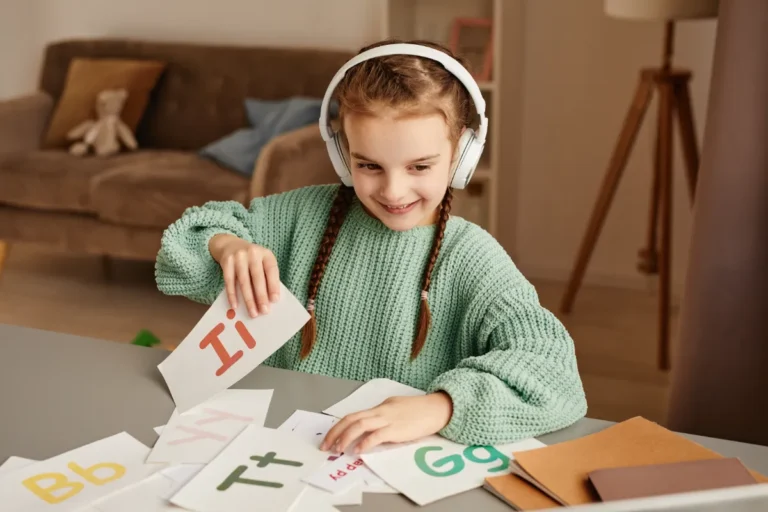
1:1 lessons
5 -16 years old
from 140€
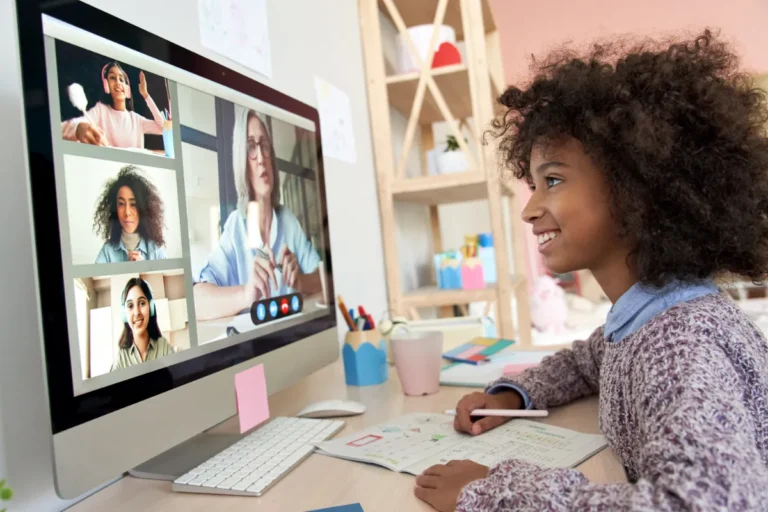
Small group (2-3 students)
6 -16 years old
from 115€/month
Give your child a head start in Portuguese by enrol him in one of your PLH or PLE courses!
Help your child gain fluency in Portuguese, one of the most spoken languages in the world. Give your child the advantage of learning a new language in a fun and effective way!
FAQ - School (General)
What courses does Escola de Português iei offer?
Escola de Português iei offers two types of courses: Portuguese as a Heritage Language (PLH) and Portuguese as a Foreign Language (PLE).
Are the courses taught in European Portuguese?
Yes, all of our courses are taught exclusively in European Portuguese.
What is the difference between PLH and PLE?
Portuguese as a Heritage Language (PLH) is designed for children and young people who speak Portuguese fluently, whereas Portuguese as a Foreign Language (PLE) targets children who do not speak Portuguese.
I'm unsure if my child should follow the PLH or PLE track. What should I do?
PLH is for children who understand and speak Portuguese fluently. PLE is for children who do not speak Portuguese fluently. For children in a “gray zone,” we recommend starting with PLE to build confidence in the language. Contact us via email or WhatsApp if you need further guidance.
What is the minimum age for enrolling in the courses?
The IEI Portuguese School supports children and young people aged between 5 and 16 years old.
Where are the courses held?
All iei courses are conducted online via the Zoom platform.
What content is covered in the courses?
The content for each course (PLH and PLE) is detailed on the respective course page.
Do the courses follow a specific curriculum?
Yes, our courses follow the iei curriculum, which is structured and adjusted according to the students’ levels and progress, based on guidelines for teaching Portuguese as a foreign or heritage language.
Is there an initial assessment to determine the student's Portuguese level?
Yes, the teacher will conduct an informal diagnostic assessment during the first lessons to adjust the curriculum.
How is each child’s learning level determined?
Learning levels are assigned based on the child’s age, and the PLH or PLE content is adapted according to each student’s starting point.
How is student progress monitored?
Student progress is regularly tracked through continuous and informal assessments during classes. Parents receive a detailed end-of-level report and can meet with the teacher twice a year to celebrate achievements and set new goals.
Are there any assessments or exams during the course?
We do not conduct formal tests or exams. Our assessment is informal and continuous throughout the lessons.
Is there homework?
We do not assign mandatory homework. However, we encourage parents to support their child’s learning by helping with optional activities (missions) that reinforce lesson content and allow for family involvement.
Do students receive certificates at the end of the course?
At the end of the school year or each sublevel, students receive a participation or completion certificate.
My child has special educational needs; can you support them in learning Portuguese?
Yes, our teaching staff is trained to support children with special educational needs, such as autism or dyslexia. Each case should be discussed during the initial admission interview.
How can I support my child?
Support strategies vary between the PLH and PLE modalities. In general, to help your child learn Portuguese:
Participate actively in the learning process, showing interest in the topics.
Create relaxed moments to use the language, based on your child’s skills (focusing on speaking and vocabulary for PLE, or reading a book together for PLH).
How can I communicate with my child's teacher?
Communication with the teacher can be done through our platform, email, or WhatsApp.*
* WhatsApp communication is not available for 4-6 student group classes.
How does the school ensure online safety and privacy for students?
We prioritize the safety and privacy of our students by using secure platforms and adhering to strict digital safety protocols to protect student information and identity. Parents are asked to authorize image/video capture during enrollment or renewal for sharing with family or on social media/website.
Where are the courses held?
All iei courses are conducted online via the Zoom platform.
When are the courses held?
Annual courses run from September to June, with the possibility of continuing during July and/or August. We also offer intensive summer courses in July.
How often are the weekly lessons?
The typical frequency for annual courses is 1 or 2 lessons per week.
Do you take breaks during the school year?
Yes, we have school breaks, including: 1 week in October, 2 or 3 weeks at Christmas, 1 week in February, and 2 weeks at Easter. The exact dates are provided each academic year.
Can I choose specific times for my child's classes?
If your child is enrolled in individual lessons or a group of 2-3 students, you can choose the class times. For groups of 4-6 students, the schedule is predefined by Escola de Português iei.
Are the lessons individual or in groups?
Escola de Português iei offers three class formats:
- Individual lessons (1 student)
- Small group lessons (2-3 students, grouped based on predefined criteria)
- Group lessons (4-6 students, with predefined schedules and content)
How many students are in each class?
Classes can have 2-3 students (for PLH and PLE courses) or 4-6 students (for intensive courses).
I have two children of different ages; can they be in the same class?
Having siblings in the same class depends on several factors, including age, language proficiency, and personality compatibility.
What is the duration of the courses?
The duration of PLH or PLE courses depends on several factors, such as the child’s age, class frequency and length, learning profile, and initial language proficiency. More details are available on each course page.
How long are the lessons?
Lesson duration can be 30, 45, 60, or 90 minutes, depending on factors such as the child’s age, learning goals, and budget.
How do the online lessons work?
Lessons are conducted via Zoom, allowing real-time interaction between students and teachers. We use digital resources such as presentations, educational games, interactive exercises, and printable materials provided beforehand (activity books and cards).
Is it necessary to print materials for class?
Yes, printing materials is necessary. Although we work online, having printed support materials is highly beneficial for children’s learning.
What technological resources are needed to participate in the lessons?
Students need a computer, iPad, or tablet with internet access. We do not recommend using mobile phones due to the small screen size.
What is the cost of the courses?
The monthly fee for individual lessons starts at €140, and for small group lessons (2-3 students) starts at 115€.
Are there packages or discounts for families with more than one child enrolled?
Yes, we offer a 10% discount on one child’s tuition if siblings are in the same class.
When is the tuition fee due?
Tuition is due by the 5th of each month. Payments can be made monthly or per term.
What is included in the tuition fee?
For individual lessons and lessons with 2-3 students, tuition includes:
- Access to our learning platform
- 1 or 2 weekly lessons (depending on the chosen frequency)
- Learning materials (to be printed)
- Two parent-teacher meetings per year
- End-of-level or end-of-year report
- Certificate of completion/participation
What is NOT included in the tuition fee?
The tuition fee does not include:
- Compensation for delays
- Sending additional study materials
- Extra meetings with the teacher
What study materials are included in the course?
Materials vary depending on the course (PLH or PLE) and the children’s age. This will be discussed directly with the teacher.
What is the cancellation and refund policy?
Students may cancel their enrollment at any time during the school year with one month’s prior notice. No refunds will be issued for amounts already paid.
What happens if my child misses a class?
Due to our global nature, it’s challenging to accommodate every country’s holidays. We offer a one-holiday tolerance per term, allowing students to reschedule based on teacher availability. Requests for rescheduling must be made in writing at least one week in advance. No adjustments to tuition or rescheduled lessons will be made for:
- Absences due to holidays, local vacations, or non-urgent reasons.
- When the school is not notified in advance.
In the case of illness, please notify the teacher as soon as possible. Rescheduling will be subject to approval, and a medical note may be required.
How do I enroll?
To enroll your child in Escola de Português iei, you must first complete the registration form. You will then be contacted to schedule a video call to finalize the enrollment by filling out the enrolment form and paying the first month’s fee.
When are the registration deadlines?
Registration for the school year starting in September takes place during the second half of August. Enrollment is also possible during the school year, subject to availability.
Are the teachers native Portuguese speakers?
Yes, our teaching staff are native speakers of European Portuguese.
I still have some questions. How can I contact you?
You can get in touch with us via email ola@iei.pt or WhatsApp +351 933 466 360. We will be happy to assist you.
What parents say about us

